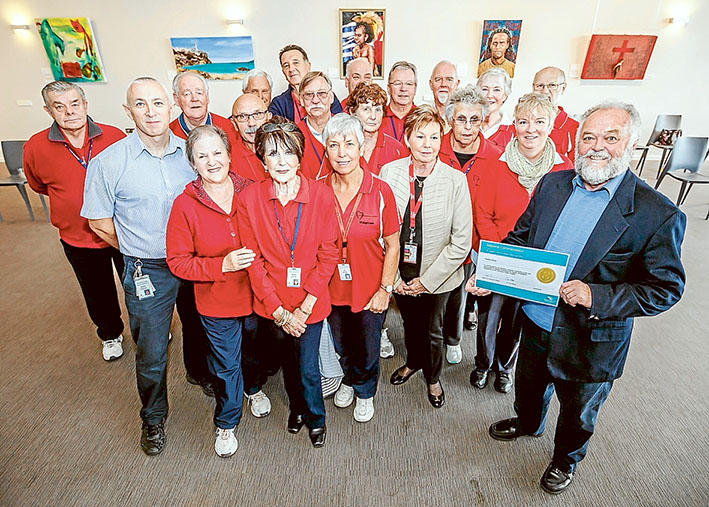
A VOLUNTEER’S most valuable contribution to cardiac patients and their families is by sharing their experiences, explaining how they felt when they were in the same situation, and by providing practical information, such as dealing with VicRoads and travel insurance companies.
That’s the message Peninsula Private Hospital’s cardiac rehabilitation and domiciliary program coordinator Jonathan Boothroyd delivered at last week’s volunteers’ awards ceremony at New Peninsula Community Centre, Craigie Rd, Mt Martha.
“Hospital staff oversee the clinical aspects of the program, however it is the volunteers who offer advice based on their experience of living through such conditions and how it feels,” Mr Boothroyd said.
“The patients often respond in a positive way, finding it enables them to learn to accept their experience, and supporting them as they move forward with their lives.
“Volunteers are the unsung heroes, although they are not often seen around the hospital as they are out helping patients in church halls, car parks and even at night walking with patients, always encouraging and providing the support many of them value so highly in their journey of recovery.”
The 25 volunteers are all former patients who attended the program at some stage, some in the first sessions.
“They are highly committed to supporting patients and their families after a cardiac event. They assist with the setup of venues used, record blood pressures, supervise exercise stations and welcome patients when they arrive,” Mr Boothroyd said.
Private’s decade-old cardiac rehab program assists patients who have had a heart attack, undergone open heart surgery, cardiac procedure, such as coronary stents, are living with heart failure or who are at risk of developing cardiovascular disease. It runs across two sites, and includes an evening session for younger patients.
The Heart Foundation has released evidence of the benefits of patients attending a cardiac rehabilitation program after the event and the decrease in re-presentation and mortality as a result.
“People who attend are 40 per cent less likely to suffer another heart attack and, if they do, are 25 per cent less likely to die,” the evidence found.
